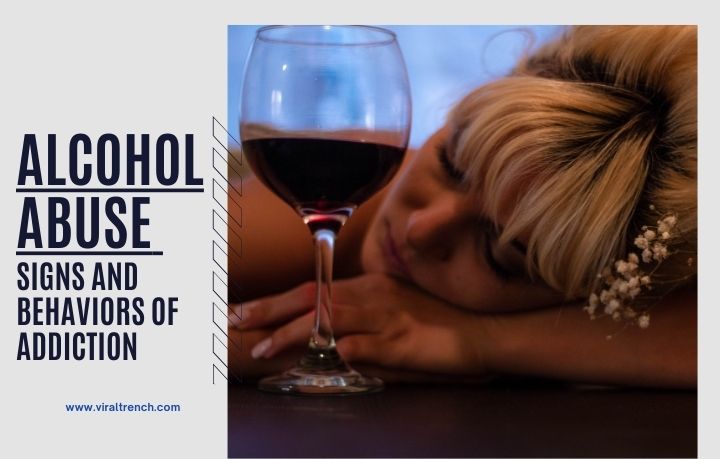Addiction is a terrible thing to have to deal with, and one of the worst parts about it is that many people who suffer from addiction have no idea that they are actually suffering from one. In all too many cases, people who do, in fact, suffer from addiction may well think that they can break that addiction whenever they can. This is true of alcohol as well as other forms of addiction. In truth, addiction can be incredibly difficult to overcome if you are both unwilling to confront it and if you do not have proper access to the tools to do so. To help identify when someone struggles with addiction to alcohol, here are some signs and behaviors often associated.

Signs and behaviors of addiction to alcohol
When trying to recognize whether someone is addicted to alcohol, there are certain behaviors to keep an eye out for. One type of behavior that tends to show up among alcoholics is an increase in aggression, which may result in worse behaviors down the line. A person may show signs of irritability and especially mood swings. They may also become more isolated, tending to drink on their own, partly in order to conceal how much drinking they are actually doing. They may also begin to modify their appearance and the acquaintances that they cavort with. People who suffer from an addiction to alcohol may also find excuses to drink more. An all-too-common example of this is someone justifying their drinking by explaining that the consumption of alcohol is something they do to manage their stress levels. Other things, such as depression and anxiety, may also be used as justification for people to drink more alcohol. In truth, alcohol is often the cause for these things, and it becomes a vicious cycle of alcohol abuse. Not all of these behaviors are going to be in everyone; in fact, some people who suffer from alcoholism may actually show not much at all in the way of symptoms, though this is not so common. A lack of these behaviors should not be taken to mean that they are not struggling with addiction.
Defensiveness is a common thing to be associated with any addiction, including an addiction to alcohol. It is a difficult thing to handle, the potential that you may in fact be suffering from alcoholism. This stems from multiple areas. One of those areas is how many societies teach people about weaknesses. We do not like to have weaknesses, and rather than admit to having one — even to themselves — they would sooner allow that weakness to get worse and cause more damage to them in the long run. Another problem is that people have come to view their consumption of alcohol as a necessary thing to deal with their problems (as mentioned above), and as such, the notion of dropping their alcohol consumption is something that they are discouraged from doing. After all, if they truly believe that this is necessary for them to function properly, they are going to be a lot less inclined to give it up when all is said and done. People who suffer from an addiction to alcohol need to be able to find a way to drop it, but addiction has a powerful grip on them.
Other signs that an alcoholic may find are annoyance when people try to get them to quit or even reduce their level of alcohol consumption, but a truly common sign is if the person feels guilty about how much they consume. They may notice that they aren’t as present in the lives of their friends and family, and in turn, feel regret for that fact. The problem is that this guilt can be a vicious cycle itself, where someone falls further into their addiction by turning to alcohol to dull the pain of the guilt. A more obvious sign of addiction is if the addiction to alcohol has landed them both employment and legal repercussions. One of the more common repercussions comes in the form of how your work performance is going. Coming in later than usual, doing a worse job, being more irritable to your co-workers and employer, etc. On the other hand, a common legal repercussion is being arrested for driving while under the influence. Regardless of the accuracy of breathalyzers, that behavior can be seen as rather reckless. This kind of behavior is not only bad on its own, but it also suggests that the person suffering from alcohol addiction are not able to control their consumption adequately enough to avoid this situation in the first place, that their inhibitions have prevented them from making that mistake.
As far as the signs of alcoholism go, there are the above-mentioned social signs, and these accompany physical signs as well. For example, it is not at all uncommon for a person suffering from alcohol addiction to experience one or both of temporary blackouts and short-term memory loss. Alcohol abuse can even result in perhaps strange symptoms, such as experiencing a hangover despite not having drank recently enough for that to have been the cause.




